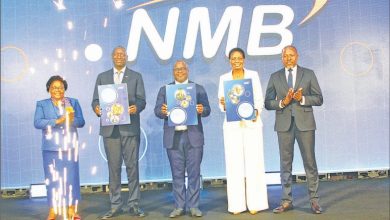How tech innovation links education to national Vision 2050

DAR ES SALAAM: IN Tanzania’s National Development Vision 2050, the country aspires to build a society enriched with quality education, modern skills and the ability to compete globally.
The Education and Training Policy of 2014, revised in 2023, emphasises the importance of technology and innovation in enhancing learning outcomes, improving teacher performance and ensuring that every child has equal access to education.
This strategic direction seeks to prepare a generation of Tanzanians who can think creatively, use technology to solve problems and fully participate in a knowledge-based global economy.
However, despite these ambitions, challenges remain, ranging from shortages of learning materials and limited laboratory facilities to disparities in educational quality between urban and rural areas.
This is where innovative solutions such as EKIMA Interactive becomes particularly significant. Within this national framework, innovative solutions are emerging.
Digital learning platforms like EKIMA, which offer immersive 3D simulations, real world visual content and interactive modules, are transforming access to practical learning.
Here, EKIMA Interactive has emerged as one of the pioneering institutions transforming Tanzania’s education sector through innovation.
By using digital content, educational videos and virtual laboratory experiments, EKIMA enhances access to quality education for students across the country.
The institution has introduced modern tools such as Virtual Reality (VR), Augmented Reality (AR) and 3D simulations, allowing learners to explore scientific concepts in interactive and immersive ways.
Through these tools, a student can conduct complex scientific experiments using a smartphone or computer, eliminating the need for expensive physical laboratory equipment.
This approach is particularly beneficial for rural schools, which often lack well-equipped laboratories. Similarly, primary school learners can study subjects such as mathematics, science and geography through educational games that make learning enjoyable and easy to understand.
EKIMA’s innovative approach not only simplifies the teaching process but also cultivates a generation of tech-savvy learners prepared for a future driven by digital solutions. This directly aligns with Tanzania’s long-term goal of becoming a digital economy by 2050.
ALSO READ: NATIONAL DEV VISION 2050: Integrity key to successes
EKIMA Chief Strategy Officer (CSO) Mr Kusiluka Aginiwe said technology has become the bridge between curiosity and understanding, ensuring that every learner experiences education beyond textbooks. EKIMA’s achievements have earned it international recognition.
The organisation was recently selected among thirteen innovators under the FUNGUO Innovation Programme’s fourth cohort, managed by UNDP Tanzania in partnership with the European Union, the United Kingdom and Finland in Tanzania.
Through this platform, EKIMA has expanded the scope of its innovative work, focusing on delivering educational solutions that have a nationwide impact.
A representative from the organisation said the recognition was both an honour and an opportunity to strengthen their mission of improving access to education through innovation.
The FUNGUO Innovation Programme aims to nurture a vibrant innovation ecosystem in Tanzania by supporting innovators who design impactful social and economic solutions.
EKIMA’s participation demonstrates that home-grown creativity can reshape the education system and address longstanding inequalities between rural and urban communities.
A UNDP Tanzania official added that EKIMA’s inclusion in the programme shows the transformative power of local innovation.
It proves that technology, education and creativity can work hand in hand to nurture a new generation of innovators, problem solvers and future leaders capable of driving Tanzania’s development agenda.
EKIMA’s participation in the FUNGUO Programme reflects the growing link between education and the innovation economy.
Every technological solution developed by the organisation benefits not only individual learners but also strengthens the foundation of a knowledgebased nation. For instance, technologies such as Virtual Reality can be applied beyond classrooms.
They can enhance vocational training, improve healthcare education and support agricultural practices.
By integrating these tools into different sectors, Tanzania can increase efficiency, deepen understanding and promote sustainable development.
EKIMA’s success also creates employment opportunities for Tanzanian youth in the growing education technology (edtech) sector.
Young innovators can now contribute by creating digital content, developing learning applications and supporting the technical infrastructure needed in schools.
This not only strengthens the education system but also fosters an innovation-driven economy that empowers youth to become contributors to national development.





